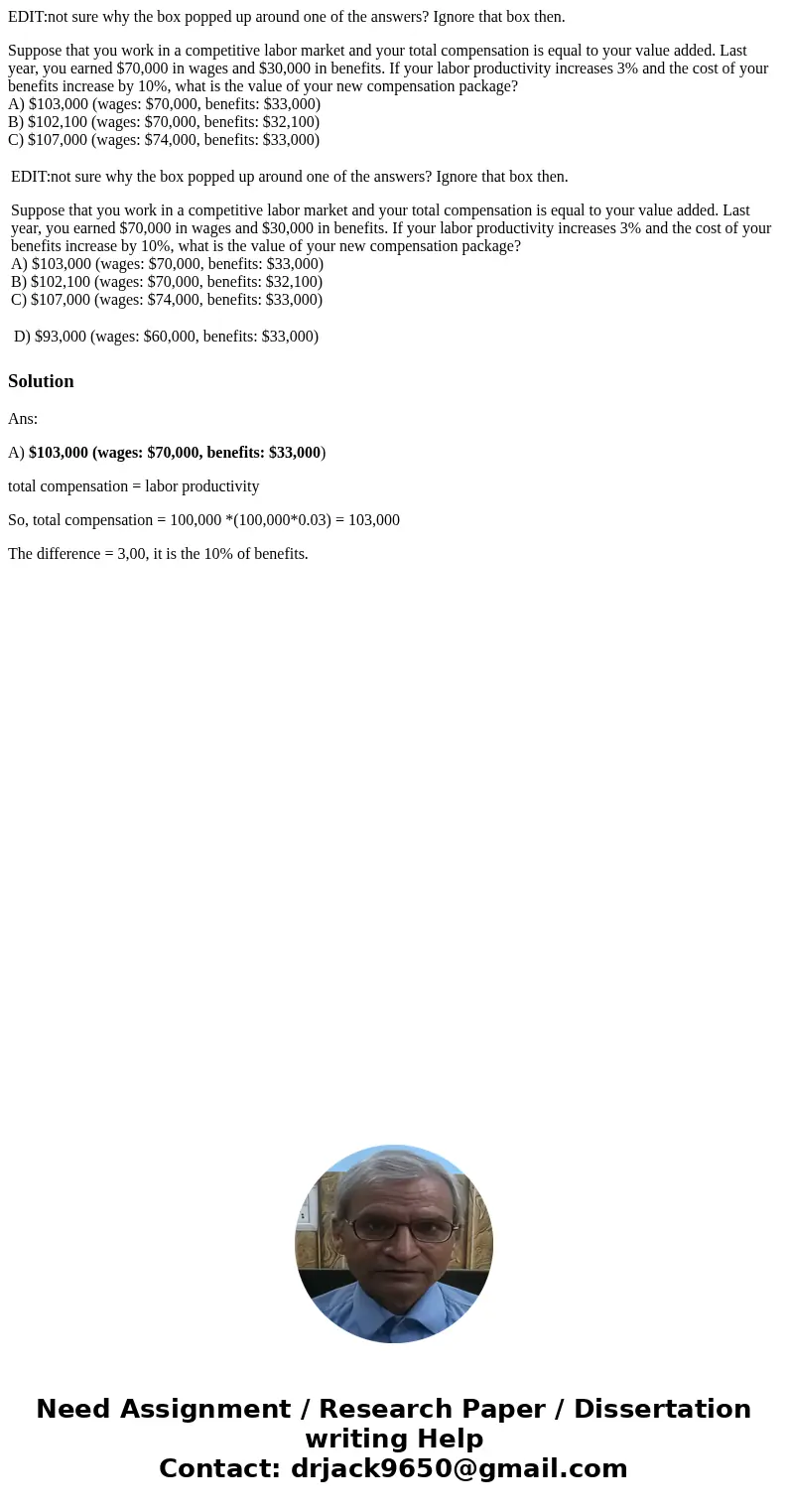EDITnot sure why the box popped up around one of the answers
EDIT:not sure why the box popped up around one of the answers? Ignore that box then.
Suppose that you work in a competitive labor market and your total compensation is equal to your value added. Last year, you earned $70,000 in wages and $30,000 in benefits. If your labor productivity increases 3% and the cost of your benefits increase by 10%, what is the value of your new compensation package?
A) $103,000 (wages: $70,000, benefits: $33,000)
B) $102,100 (wages: $70,000, benefits: $32,100)
C) $107,000 (wages: $74,000, benefits: $33,000)
| EDIT:not sure why the box popped up around one of the answers? Ignore that box then. Suppose that you work in a competitive labor market and your total compensation is equal to your value added. Last year, you earned $70,000 in wages and $30,000 in benefits. If your labor productivity increases 3% and the cost of your benefits increase by 10%, what is the value of your new compensation package?
|
Solution
Ans:
A) $103,000 (wages: $70,000, benefits: $33,000)
total compensation = labor productivity
So, total compensation = 100,000 *(100,000*0.03) = 103,000
The difference = 3,00, it is the 10% of benefits.

 Homework Sourse
Homework Sourse